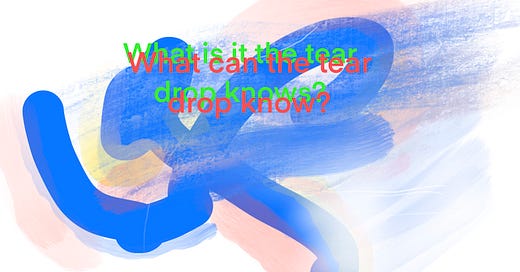Excess of sorrow laughs, excess of joy weeps.
Proverb 26, Proverbs of Hell, from William Blake’s The Marriage of Heaven and Hell
Though he lived in the 18th century, William Blake is a poet for our time. I am meditating on The Proverbs of Hell, from his illuminated work The Marriage of Heaven and Hell, to explore the relationship of poetry to prayer and prophecy.
.. the appointed time has grown short; from now on, let even those who have wives be as though they had none, and those who mourn as though they were not mourning …
1 Corinthians 7:29
August, 1968. Democrats gathered in the hog butcher of the world city for their national convention. 1968 was a troubled year: Martin Luther King, Jr had been murdered in April; Robert F. Kennedy had been murdered in June. Emotions ran high. The VietNam War was extremely unpopular, and young men were burning their draft cards. Excess of sorrow?
The leaders of the demonstrations attempted to obtain legal permits for their march. Tom Hayden, who would later be elected as California’s senator, led this effort. He was joined by anarchic jokesters who called themselves Yippies — the best known being Abbie Hoffman and Jerry Rubin. These were people who had lost faith in the levers of power. These were people who were skeptical of incremental change. They did not trust the government; indeed, they perceived it to be a corrupt system that feared dissent.

The Trial of the Chicago Seven (neé Eight) found Hoffman, Rubin, el al, guilty of conspiracy to incite a riot. Some believe it was the Chicago police who rioted. Dan Rather began his career with CBS when he was assaulted by a policeman on the convention floor.
Fifty-three years later, a group of radicals forced their way into the U.S. capital. They, also, had lost faith with the slow machinations of the branches of the four branches government. They, also, had become skeptical of incremental change. They distrusted the traditional sources of information — turning to Fox News just as their parents might have bought the Village Voice or Ramparts magazine.
Where the Yippies supported a joyous anarchy, these new radical populists seek a new king.
The thing about excess is, there comes a point when a concept or ideal becomes its opposite. The Yippies were far left; the MAGA crowd of Jan 6 were far right. It’s striking how much they have in common.
Sorrow becomes laughter when, as Langston Hughes put it, one laughs to keep from crying. It can be the response of the oppressed when all other avenues have been blocked. The laugh of recognition comes when you accept the absurdity of your expectations .
Joy is not necessarily the opposite of sorrow. To begin with, sorrow is a natural response to a loss, real or imagined. Joy may also be a natural response — one may be “surprised by joy,” as C.S. Lewis put it — but joy may also be a choice. One may seek joy. One may seek the rainbows even while one is wandering in the darkness.
I don’t think this type of joy would turn to tears. If I can train myself to seek joy as an on-going discipline, I would find delight. “Some are born to sweet delight,” Blake wrote in Auguries of Innocence, “Some are born to endless night.” But what if those born to endless night — and I’m not saying I’m one of those — what if they could seek joy?
Excess of joy may weep when you think you’ve exhausted all sources of joy. You think you’ve exhausted the well of joy. It’s been said, “Only the dreamer can change the dream,” (John Logan); likewise, only you know your capacity for joy. If you limit yourself, you begin to build your own prison, with bricks of self doubt.
”If the Sun and Moon should doubt, they’d immediately go out.” Blake wrote elsewhere. Likewise, your bricks of self-limitation block beams of joy. Your excess has bred tears.




